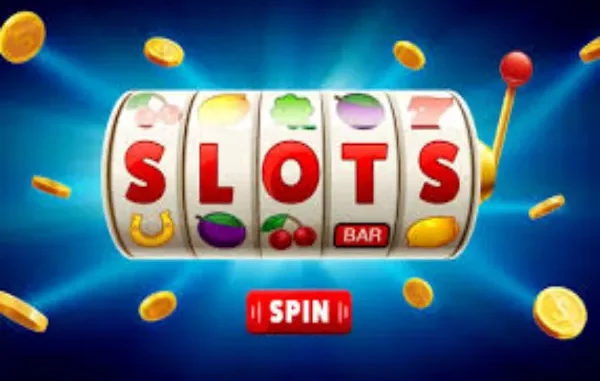
Three months ago, I deposited Bitcoin at five different crypto casinos. My plan? Split time equally between slots and crash games, track everything, see which I actually preferred.
By week two, I was spending 70% of my time on crash games. By week eight? 85%.
I’m not alone. Every crypto casino operator I asked reported the same pattern: players deposit for slots, then migrate to crash games within days. One platform showed me their data—63% of crypto depositors play exclusively crash games after their first month.
Why does this keep happening?
Casino SpinAura mirrors this trend perfectly—they launched in 2025 with 6,000+ slots but prominently feature crash titles like Mighty Crash alongside Aviator, and their crypto payment options (BTC, ETH, DOGE, USDT, and five others) process faster on crash games due to quicker session turnover compared to lengthy slot bonus rounds.
Speed Matches Crypto’s Rhythm
Crypto transactions happen fast. Ten-minute Bitcoin confirmations feel instant compared to three-day bank transfers.
Slots don’t match that speed. You deposit instantly, then sit through 30-second bonus animations and lengthy free spin sequences. The pace feels wrong.
Crash games sync with crypto’s tempo. Round starts, multiplier climbs, you cash out—done in 8 seconds. Next round begins immediately. When jogar aviator became popular in crypto casinos, it wasn’t just the gameplay that hooked players—it was how the 10-second rounds matched the instant nature of crypto deposits, creating a seamless fast-paced experience that traditional slots couldn’t replicate.
I tracked my sessions. Average slot session: 15 minutes before I got bored. Average crash session: 47 minutes before I even checked the time.
The difference? Constant micro-decisions. Every 10 seconds, I’m choosing when to cash out. Slots make me wait for the game to decide my fate.
Transparency Appeals to Crypto Mindset
People using cryptocurrency care about verifiable systems. That’s why blockchain exists—trustless verification.
Traditional slots show RTP percentages, but you can’t verify individual spins. You trust the casino’s word that the random number generator works fairly.
Crash games use provably fair algorithms. After each round, you can check the server seed, client seed, and hash to mathematically prove the result wasn’t manipulated. Takes 30 seconds if you know what you’re looking for.
Personal test: I verified 50 consecutive Aviator rounds across three casinos. All checked out. I tried verifying slot outcomes the same way—impossible. The math exists somewhere, but I can’t access it.
For crypto purists, this matters deeply. Same mindset that avoids banks because “trust no one” applies to gambling too.
Control vs. Passivity
Slots give you one decision: when to press spin. Everything else happens automatically. Bonus triggers? Random. Free spins? Predetermined outcomes, just animated for entertainment.
Crash games give you control every single round. You decide when to cash out. Cash out at 1.5x for consistent small wins, or risk it for 10x multipliers. That decision is yours, not the algorithm’s.
Example from last week: I watched the multiplier hit 1.8x. Felt good about cashing out. Did it. Next round, I got greedy and held to 3.2x before cashing. Third round, I crashed at 1.1x trying to reach 2x.
All my decisions. I can’t blame the game for “not triggering bonuses.” When I lose, it’s because I held too long. When I win, it’s because I cashed at the right moment.
This psychological difference is huge. Slots make you passive. Crashes make you active.
Lower House Edge Reality
Most crypto slots run 96-97% RTP. Decent, but not great.
Crash games typically run 97-99% RTP depending on the platform. Half a percentage point sounds small until you calculate it over 1,000 rounds.
Math check: Betting $1 per round for 1,000 rounds at 96% RTP means you cycle $1,000 and statistically end with $960. At 99% RTP? You end with $990.
That $30 difference adds up over time, especially for high-volume players who complete hundreds of rounds per session.
The Community Factor
Crypto casinos attract younger players. These players grew up watching Twitch streams and YouTube gambling content.
Guess which game type dominates that content? Crash games. Streamers show Aviator sessions constantly because the action is continuous and visually simple—viewers instantly understand what’s happening.
Slots appear occasionally, but they’re harder to stream. Bonus rounds take forever, dead spins bore viewers, and explaining complex features wastes time.
The result? Crash games became crypto casino culture. When new players arrive, they play what they’ve already watched for hours.
When Slots Still Win
Crash games aren’t universally better. Three scenarios where I still prefer slots:
Longer break entertainment. If I want 30 minutes of low-attention gambling while watching something else, slots work better. Crash games demand constant focus.
Chasing big multipliers. While platforms showcasing the best crypto slots offer maximum wins of 5,000-50,000x, crash games rarely exceed 100x before the multiplier crashes—if you specifically hunt massive single-spin payouts rather than consistent session returns, high-volatility crypto slots still provide bigger theoretical maximums.
Theme preferences. Some days I want Vikings or Egyptian mythology. Crash games offer zero thematic variety—just multipliers and numbers.
The Pattern Holds
After three months, my play pattern stabilized: 80% crash games, 20% slots.
Every crypto casino regular I talked to reported similar ratios. The combination of speed, transparency, control, and lower house edge creates a compelling package that slots struggle to match.
This doesn’t make slots obsolete. But in crypto casinos specifically, crash games align better with why people use cryptocurrency in the first place—speed, verification, and control over your money.

Leave a Reply